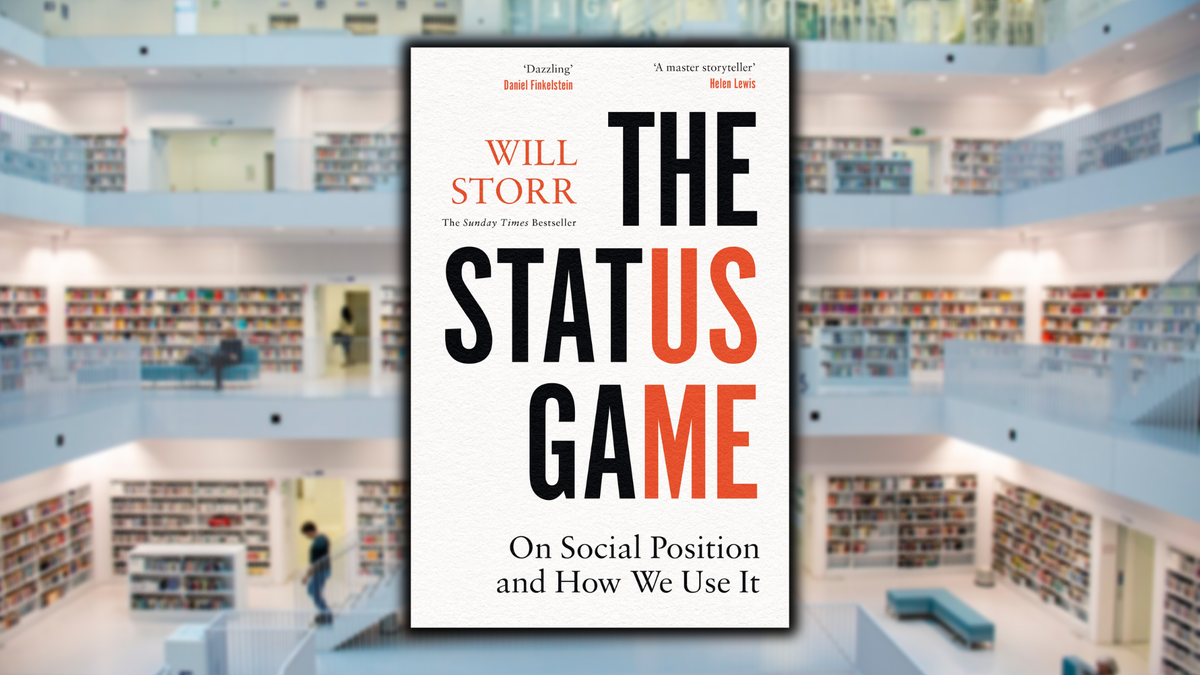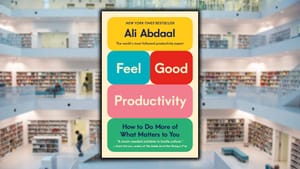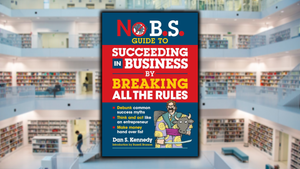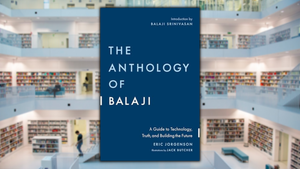
This Book is For:
*Anyone who feels as though the rampant individualism and status-seeking that's omnipresent in modern life has gone too far and who wants to explore alternative ways of relating to the other members of their society.
*Students of human nature who want to do a deep dive into one of the most powerful and persuasive causal explanations of why people behave the way they do.
*People who are interested in learning about group dynamics, and how the relentless drive for status and recognition shapes our lives, our societies, and our world.
Summary:
“We can think of our reputation as a symbolic version of us that exists in the minds of others. Human brains required the capacity to store these highly detailed symbolic selves. Our neural worlds are crowded with hallucinations of others so vivid they can almost be summoned at will. We all walk around with everyone we know crowded inside our heads.”
-Will Storr, The Status Game
Put any group of humans together, and almost instantly they'll start trying to figure out who should lead, who's most worthy of respect, and who should be praised and emulated.
Not only that, but we each carry around a sense of where we stand in that hierarchy, and many of us go to rather extreme lengths in order to rise to the top.
According to the award-winning writer and journalist Will Storr (award-winning = high status!), the "status game" that we're all playing is an invisible thread that runs through the best and the worst of what human beings do all day.
Whether we're "winning" or "losing" affects our happiness and our self-esteem, our relationships with others, our goals in life and whom we choose to copy, and even how long we'll live.
Status is a serious business, and that's because virtually everything hinges on it. People who hold high status within their group gain access to the best of everything: potential partners, opportunities for advancement, the respect of their peers - everything that we've been told to want ever since we all learned to talk and to listen.
Personally, I think of Will Storr as something like a grumpier (but still likable) Alan Watts: someone who has penetrated deep into the heart of reality and has returned with something vitally important to tell us.
His wide, impeccable research helps explain the behavior of racists, murderers, religious fundamentalists, narcissists, internet trolls, and much more besides, but also how and why people go to such extreme lengths in order to gain and preserve their status within the group, and what happens when that status disappears or is stripped away from them. I'll tell you right now: It's...not good. Storr writes:
“Status is an essential nutrient found not in meat or fruit or sunlight but in the successful playing of our lives. When we feel chronically deprived of it, or disconnected from the game, our minds and bodies can turn against us. To our brains, status is a resource as real as oxygen or water. When we lose it, we break.”
That being said, the pursuit of status is also responsible for some of the best things that human beings have ever created. It inspires us to create, to pursue lofty aims, and to win "success games" that add value to our group and make everyone's lives within that group even better. Status, according to Storr, is responsible for the best and worst of everything.
The best of us gain status by adding value to the rest of humanity; the worst of us, fueled by status concerns and directed by deep psychological urges and processes, are driven to commit unspeakable atrocities and to divide humanity into the "worthy" and the "unworthy."
The Status Game is a fascinating - if more than a little bit dark - discussion of the drama inherent in everyday life as we go about trying to impress strangers, attract mates, defend our status and our self-esteem, and fight back against rival groups who threaten the validity of our group's own particular status game.
As explained in the Key Ideas section below, it's not just individuals in groups that play status games either - entire nations play them against each other too.
The stakes are even higher on the international stage, since when individuals feel humiliated at the loss of their status they may lash out, but when entire countries are humiliated - when they have their status stripped away - the global consequences may be nothing short of devastating.
All this being said, just think about how complicated it is to be alive!
You've got all these forces - the cravings for status and for love, social conditioning and the impact on the individual of the wider culture, the subconscious fear of death, the swirling emotional storms affecting our thoughts and actions all day long, and so much more - how do we even live? How do we make sense of it all?
For that, we should be grateful to Will Storr as he explains a few of the rules of the Game of Life...
Key Ideas:
#1: Life is a Game
“It’s this distorted and partial avatar we play at life with, not our whole self. Nobody ever truly knows us. They never will.”
"Life" is many things to many people. Depending on whom you ask, life is the natural result of organic processes like the Big Bang; a deathly serious struggle between the forces of good and evil; a giant mystery; totally meaningless; a stage that we must pass through on our way to higher levels of existence.
Will Storr's central thesis here is that life is a game. Developing his argument from his previous book, Selfie, he shows convincingly that out of everything that life "is," it's undoubtedly also a giant game, and we are all players. No one asked us if we wanted to play; and we can "quit" the game, permanently if we so choose. Many people do. But while we're here, we're playing a giant game and that is "the status game."
Moreover, when you take a look at the incredibly high stakes of this game, you can see why all the players seem to take it so seriously!
Gaining and holding status - being well thought of by the group, and highly regarded as a member of one's "tribe" - is the key to winning some of the most sought-after prizes available within the game of life.
Everything that human beings desire - safety, security, sex, self-esteem, money, and more - is a hell of a lot easier to get when you hold high status within your social milieu. The highest-status humans gain access to all of the above, and they do so much faster and easier than human beings of lower status. Gaining status is basically the key to getting everything you want in life (except wisdom), and so it's no wonder why the world in which the status game plays itself out is such a circus.
And that's just within this life! Where virtue (moral status) is concerned, and among religious believers, the "prize" is literally an eternity of heavenly bliss. If you believe that this life is your one and only chance to gain everything worth having and that high status is the means to achieve it, you will take this game very, very seriously, as most people do!
Since most of human life takes place within a community of others, that status game is played against those others. It's not enough just to be part of a group; most people feel a desperate need to rise in status within that group, and they'll use a staggering variety of means to achieve that, as we've discussed before and will revisit later on.
#2: The Three Types of Status
According to Storr, every single way that human beings attempt to gain status in relation to others can be broken down into three categories: dominance, success, and virtue games. We'll examine all three of them here.
The first category is dominance games, where status is won - taken - by brute force and simply by being stronger, more aggressive, and more willing to use violence and intimidation to achieve one's ends. It's more than likely the first of the three dominance games to have emerged within human societies, and it's obviously still with us.
The next category is success games, where status is won by achieving worthy goals, expressing one's talents, and being "better than" one's co-players. When people put their family names on the sides of buildings, or when CEOs take millions more in compensation than they could ever spend in two lifetimes, or when someone paints the Sistine Chapel, you know that they're playing a success game.
The final category is virtue games, which can spiral into dominance games quite easily, as when one group asserts moral or ideological superiority over another and goes to extreme lengths to wipe out their rivals. This game can be positive for society, too ("I donate way more to charity than you do!"), but internet trolls are another example of the negative aspect of virtue games.
Of the three, dominance games have the least utility in the modern world. Being assertive works wonders depending on what you're trying to do, but gone are the days when it's in the world's best interests for one person - or country - to use force and physical violence against another or when it can be expected to work out well for anybody. We're too interconnected and we simply need each other too much.
That being said, the final two status games are the source of most of what is excellent and worthwhile in the world. Striving for success and to be recognized as virtuous leads people to create art, launch businesses, and start charities - all great endeavors. But success and virtue games are definitely not unmitigated goods, as will become abundantly clear later if it isn't already!
#3: Status Games Within Status Games
The entire human drama could be considered a status game, but there are also status games within the larger status game that is human life as it's lived in a community with others. It's not as complicated as I'm making it sound, I promise! Let me explain...
For example, climbing to the top of your company and being named CEO would mean that you've "won" the status game being played across the whole company. But within, say, the billing department, the marketing department, the shipping department, etc., other status games are being played out, with winners and losers within the larger game of reaching the top of the entire company.
Extending the example a bit further, we can also say that some status games are more prestigious than others - as agreed upon implicitly and explicitly by the players - where winning the status game of the janitorial department would be seen as less of an accomplishment than becoming head of marketing, etc.
You can think of this as a hierarchy of games, with some status games being seen as more or less worth winning and investing in than others.
Storr's point, however, is that status games "erupt" everywhere that human beings congregate and organize themselves into groups. Once embedded within a group, most people feel a desperate need to "prove their worth" and to win the status game that's being played within that group at the particular place and time they find themselves.
Little do many people realize - and here I'm inserting my own ideas - that every single human being is automatically deserving of infinite and unconditional positive regard, no matter how well or poorly they're doing in some status game. The drive for recognition is powerful, but unconditional love is the most powerful force in the universe. Unconditional love is the ultimate status, and it's yours already, simply because you are alive.
That being said, Storr's point stands in that the variety of status games we play feels infinite. From premodern societies in the most remote regions of Earth to futuristic skyscrapers in our most developed cities, you will always find human beings forming groups and competing for status.
There are financial status games, religious games, sports games, fashion games, social media games, gender games, racial games, nationalist games - all sorts of ridiculous shit. Basically, you can put any group of human beings together and they will automatically and immediately try to figure out who should take charge and be the leader, who should be accorded the most status, and so on.
In fact, as discussed in the Book Notes section below, the more unclear it is who exactly is winning the status game in that particular group, the more unstable that group is and the higher likelihood of conflict. Clearly, if status games didn't exist, it would be necessary to invent them.
#4: The Best and Worst of Everything
“The moral reality we live in is a virtue game. We use our displays of morality to manufacture status. It’s good that we do this. It’s functional.
It’s why billionaires fund libraries, university scholarships and scientific endeavors; it’s why a study of 11,672 organ donations in the USA found only thirty-one were made anonymously. It’s why we feel good when we commit moral acts and thoughts privately and enjoy the approval of our imaginary audience.
Virtue status is the bribe that nudges us into putting the interests of other people – principally our co-players – before our own.”
There's plenty of death and destruction in later Key Ideas, so here I'll focus on the good. At their best, status games urge us to be good to one another, create value, build all these incredible things, and make life better for everyone.
The people who are playing success games are the ones who are feeding the hungry, creating jobs, gearing up to explore the universe, and striving to realize a future that people everywhere will want to live in.
Sure, it gets ridiculous sometimes (alright, often), with people going on about leaving "legacies," trying to grow the biggest yams, showing off the brightest beads and fastest cars - but the spillover effect is that we are lifting hundreds of millions of people out of poverty, we make art for millions of us to enjoy, and everything else that makes life worth living.
One of the most hopeful facts about humans (at least in my opinion) is that giving, making other people's lives better, makes us feel really good! Most people like helping others, and it makes us feel good to do so too. Storr would be cynical about this, probably saying something like it makes us feel good because we feel as though we are rising in the hierarchy, but the ultimate outcome is the same: life is better for everyone when we work to make other people's lives better.
#5: The Link Between Status and Well-Being
“Status is an essential nutrient found not in meat or fruit or sunlight but in the successful playing of our lives. When we feel chronically deprived of it, or disconnected from the game, our minds and bodies can turn against us. To our brains, status is a resource as real as oxygen or water. When we lose it, we break.”
There's not much to add to these quotes here, so I'll just connect some threads of Storr's argument to show the fascinating connection between health, well-being, and status. As he writes:
“Wherever psychologists look, they find a remarkably powerful link between status and wellbeing. One study of more than sixty thousand people across 123 countries found people’s wellbeing ‘consistently depended on the degree to which people felt respected by others.’ Attainment of status or its loss was ‘the strongest predictor of long-term positive and negative feelings.’”
The human body and mind are always reacting to signals in the environment, helping us to survive and reproduce successfully. And because it can be extremely difficult to see precisely where other people sit on the status hierarchy, we've developed an internal, subconscious "status detection system" that reads "relevant cues in the environment to assess status."
The purpose of the signals that our bodies and minds send us is to motivate action, to move us toward what is in our best interests in terms of survival and reproduction. Thus, you can think of physical and emotional pain and rewards as signals telling us to take action. It's like we're saying to ourselves, "Oh no, I'm low on the status hierarchy! I'd better build a cathedral!"
Storr expands on this in the book and writes:
“When we’re not doing well in the game of life, our bodies prepare for crisis by switching our settings so we’re readied for attack. It increases inflammation, which helps the healing of any physical wounds we might be about to suffer. It also saves resources by reducing our antiviral response.
But when our inflammation is raised for too long, it can damage us in myriad ways. It increases susceptibility to neurodegenerative disease and promotes the spread of plaque in the arteries and the growth of cancer cells.
According to a world leader in this field, Professor Steve Cole, ‘several studies have related objective indicators of low social status to increases expression of pro-inflammatory genes and/or decreased expression of antiviral genes.
Being beaten down in the rat race naturally changes what you expect from tomorrow, and that does seem to filter down into the way your cells prepare for tomorrow.’”
#6: Faith and the Desperation for Status
“In the places where status is won and lost, we can be vulnerable to believing almost anything.”
When people want to belong to a group, the price of admission is often to take that group's beliefs on faith, regardless of how much rational sense it would make to an outside observer. In such cases, blind faith is incentivized, not an agonizing search for the truth no matter what. Storr explains:
“When people accept a core belief and act on it, as the price for earning connection and status, they allow themselves to become possessed. That belief is now a status symbol.
As their hallucination of reality bends itself around it, they become its host and crusader, deranged and impossible to reason with. In short, their belief has become sacred.”
Perhaps unsurprisingly, being smarter or more intelligent is often no defense. Even the smartest people can be taken in by strange theories, nutty beliefs, and weird dogmas. In fact:
“When brilliant people are motivated to find evidence to support their group’s false beliefs, they’re brilliant at finding it. Their superior intelligence simply makes them better at reaffirming their bent story of reality.”
As much as we don't want to admit it, there are brilliant people out there who believe completely opposite things as we do. There are highly intelligent liberals and conservatives, and wickedly smart theists and atheists.
But so strong is the drive to belong, that we would rather delude ourselves in believing falsehoods than give up our spot in the group. Wrong together is preferable to being right by yourself.
It also explains why people hold on so strongly to beliefs that many people would find ridiculous. Again, faith is incentivized, not truth. And when you've spent your whole life basing your identity and belonging on believing something and then you encounter someone else playing a rival game, it's very psychologically jarring.
It threatens the validity of the game you've been playing, so you shut down. They must be idiots - why would they believe such a wacky thing? How dare they claim that our rules and criteria for claiming status are invalid and that our dream of reality is false?
#7: Status and Murder
“Time after time, men give the same answer as to why they assault or kill: 'Because he disrespected me.' In fact, they used that phrase so often that they abbreviated it into the slang phrase, 'He dis'ed me.' Whenever people use a word so often that they abbreviate it, it is clearly central to their moral and emotional vocabulary.”
The status game can quickly turn bloody and brutal. Because the stakes are so high, people will do anything to win, and when someone's status is threatened in an extreme way, then they will go to extreme lengths to reclaim it - or burn the status game to the ground.
As discussed in Key Idea #5, the subconscious status-detection system sends us signals to let us know when our status within the group is threatened, and in order for these signals to work - to properly motivate us to take action - they need to be sufficiently painful or extreme.
In his phenomenal book about the subconscious fear of death, The Denial of Death, Ernest Becker posits that when stock brokers kills themselves after losing all their money, it's because they've invested their identity so deeply in those numbers that in a very real sense they are those numbers. And when they reach $0, it's like they're already dead. Losing status is a fate worse than death, and so human beings are willing to inflict death on others in order to avenge themselves or in misguided efforts to "reclaim" their lost status.
“Humiliation can be seen as the opposite of status, the hell to its heaven,” writes Storr, and you see this same story play out every single day as men and women respond to status slights and takedowns with extreme violence (which is mostly the case with men) or with reputational assassination (which is the strategy most often employed by women).
“Better to reign in Hell, than to serve in Heaven,” says Satan in John Milton's epic poem, Paradise Lost, and better to take revenge on successful players of the status game than consent to be a loser. In one of Storr's interviews for the book:
“Gilligan once believed muggings and armed robberies to be motivated primarily by greed or need. ‘But when I actually sat down and spoke at length with men who had repeatedly committed such crimes, I would start to hear comments like, I never got so much respect before in my life as I did when I pointed a gun at some dude’s face.’”
#8: Status and Genocide
“One study of ninety-four wars since 1648 found 67 percent were motivated by matters of national standing or revenge, with the next greatest factor – security – coming in at a distant 18 percent.
Anthropologists Professors Alan Page Fiske and Tage Shakti Rai find that frequently, ‘decision-makers and public opinion are motivated to declare war to maintain or raise the rank of their nation vis-à-vis other nations, particularly when they feel that they have been unjustly pushed down to a low rank among other nations.’
The warring party will tend to attack in a dream of toxic morality, convinced of its virtuous intent: ‘the more a nation feels humiliated by a moral violation against it, and the more the nation experiences the act as morally outrageous, the more it seeks vengeance.'”
The international stage is a status game as well, and countries are players, with something akin to their own personalities and playing styles. In one of the fascinating historical discussions in The Status Game, Storr studies the depth of humiliation experienced by Germany following its disastrous defeat in World War I and the shame of being forced to sign the Treaty of Versailles with its strict terms and conditions.
“Nations the world over become dangerous when humiliated," writes Storr, and Hitler was able to take advantage of Germany's humiliation - painting a picture of the next Golden Age of Germany in the process - and take control of that country in the 1930s.
Obviously, the same dynamics are still playing out today - the egos of countries are every bit as real as the egos of individuals, and they still exist on the world stage, even though the 1940s are a distant memory.
Countries still compete for status in areas like space flight, international finance, the Olympic games, and so on, even as modern nations rarely resort to dominance tactics anymore. But the instincts and the impulses that fueled the death and destruction of the 20th century are still with us in the 21st, and as Storr says:
“The most potent weapon of mass destruction is the humiliated mind.”
#9: How to Play the Game
“I believe we can usefully settle on three dimensions for successful play: warmth, sincerity, and competence. This constitutes a kind of blessed triumvirate of human behavior and, whilst undoubtedly being easier said than done, it at least offers an ideal to aim at.
As we’ve learned, there are three major routes to status in human games: we can grab it in acts of dominance or we can earn prestige by proving ourselves useful to our group, with acts that signal virtue or success.
When we’re warm, we imply we’re not going to use dominance; when sincere, that we’re going to play fairly; when competent, that we’re going to be valuable to the game itself, both in its own battles for status, and to individual players who might learn from us.”
The rest of the Stairway to Wisdom is dedicated to answering the question, "How can we best play the game of life?" But Will Storr offers three ideas here and it's an excellent place to start.
First, we can offer warmth to our fellow players. Basically, we can play nice. In the modern, interconnected, globalized world, mean guys finish last, and when we prioritize warmth in our interactions, it sends a signal to others that we're not going to fall back on dominance.
Being friendly to people really isn't that hard, and as life strategies go, it's one of the best you could ever settle on. Life isn't nearly as nasty, brutal, or short as it was in times past; there is so much opportunity for everyone to get everything they've ever wanted, and we can all win. Thus, warmth will get you further than dominance.
Next is sincerity, and, well, you can't fake that! Nowadays, when we have online profiles and large reputational shadows, and when we can't assume that we'll never again run into the person we just screwed over, sincerity is the strategy to go with. It's keeping your word, fulfilling your promises, doing what you said you were going to do, and prioritizing the health of the long-term relationship over any possibility of quick wins.
Third, competence. This is a huge one. The rest of us need to be able to rely on you. We need you to be strong and capable; for you to help humanity win. Demonstrating competence is one of the best ways to rise as a leader, both elevating the group's status and your own at the same time by proving that you are someone worthy of emulating, looking up to, and following. Competent people help us all to raise our game, and that can be you.
#10: Play Many Games
“Perhaps the best mode of protection is to play many games. People who appear brainwashed have invested too much of their identity into a single game. They rely on it wholly for their connection and status, the maintenance of which requires them to be filled up with its dream of reality, no matter how delusional.
Not only does this put them at risk of committing harm to others, they risk catastrophic collapse themselves. If the game fails, or they become expelled, their identity – their very self – can disintegrate. No such risk can befall the player with a diversity of identities who plays diverse games.
Indeed, doing so seems to be profoundly good for us. Psychologists find those with ‘complex,’ multiple self-identities tend to be happier, healthier, and have more stable emotional lives.
But it’s important, too, that every game isn’t played with equal focus. If we’re going to earn the prestige we desire, we must strive to become truly valuable to our co-players. This takes time. It requires an amount of dogged attention to one pursuit over others. Life, then, should be organized as a hierarchy of games, with that at the top drawing the most effort and generating maximal meaning.”
As Jordan Peterson teaches, we are never embedded in just a single dominance hierarchy, and Will Storr would agree (Key Idea #3). We're always playing several status games simultaneously, and it's good for our mental health that we do this.
If we were to rely on just one identity for all of our meaning and self-worth, what would happen if that identity were somehow threatened or taken away from us?
If you are what you do, then if you don't, you aren't. If you base your entire life around one set of beliefs or being excellent at just one thing, and then you find out that that belief was false, or you're no longer able to do that one thing, then your whole status goes up in smoke.
Part of the solution is to play many games, as Storr and several other people suggest. Storr says you should play many different status games, Dr. Peterson says that you should invest in climbing several different dominance hierarchies, and even the cartoonist Scott Adams says it's much more effective to enter the top 10% of two different things than trying to enter the top 1% of just one thing.
I also feel as though it's important - fundamentally so - to realize that each and every human being possess infinite worth and value simply by virtue of being alive on this planet as a human. You don't have to do anything to gain status, because you already have it as a member of the human race. And just as importantly, that status is inalienable: you can never lose it.

Book Notes:
“Assuming we have enough money to live, it seems relative status makes us happier than raw cash.”
“The minimum requirement for play is connection. Before we can be rewarded with status, we must first be accepted into the group as a player.”
“Another study, comparing people’s self-image on a range of traits found that ‘virtually all individuals irrationally inflated their moral qualities.’
The researchers wrote, ‘most people strongly believe they are just, virtuous, and moral, yet regard the average person as distinctly less so.’ Moral superiority, they concluded, is a ‘uniquely strong and prevalent form of positive illusion.’”
“The greater and faster the downward mobility, the more likely it is to trigger suicide.”
“The status detection system even reads symbolic information in sounds we can’t consciously hear.
When speaking, we emit a low-frequency hum at around 500 hertz. When people meet and talk, their hums shift. The highest-status person in the group sets its level and the rest adjust to match. This hum is thought to be an ‘unconscious social instrument’ that helps sort us into status hierarchies.
Analyses of interviews on The Larry King Show found the host deferentially changed his hum to match Elizabeth Taylor whilst Dan Quayle adjusted to him.”
“We might’ve stored the reputations of others in our brains, but those reputations lived and died in the stories we told of them. The current dominant theory says this is why we evolved speech – to gossip.
If others in the tribe spoke well of us, we’d be rewarded with a prestigious reputation and its glittering dividends; if bad, we’d sink in the rankings and risk punishment.
We could also gain status from gossiping. Who we gossip with can itself be a status symbol: swapping tattle with high-ranked others implies we’re of high rank too.
Furthermore, one of gossip’s critical purposes was to demonstrate the rules of the tribe and what happened if you broke them. By gossiping we demonstrate our knowledge of the rules, and our loyalty to them, and this can also earn status.
Gossip has been described as ‘an activity that is attention seeking, promoting self-interest and self-image through social comparison, and the discrediting of others.’ It’s universal and essential to our gameplay: children start to gossip almost as soon as they can speak.”
“Without symbolic prestige, it’s difficult to see how complex societies could have developed.”
“The more ambiguous the relation is with respect to who should be expected to outrank whom, the more likely violence is.”
-Roger Gould
“In life, even the subtlest interpersonal events can be symbolic. They’re all too easily read by the status detection system as ‘fuck you.’”
“One after another of the most violent men I have worked with over the years have described to me how they had been humiliated repeatedly throughout their childhoods.”
-James Gilligan
“The child who is not embraced by his village will burn it down to feel its warmth.”
“Social media is status game. It can’t not be: it’s human life, unfolding online. It’s all there, the success games of the selfie-takers and humble-braggers; the virtue games of the wellness gurus and political campaigners; the dominance games of the mobbers and the cancellers.”
“Of course, progressive activists don’t only gain outsized status via their mobs. With their peerless levels of wealth and education, they’re also able to insert their elites into many of society’s most powerful games.
It’s important to note, too, that concluding all progressive activists approve of mob behavior would be extremely unfair. But this is the point. Those who play in their mobs are a minority of a minority. And yet too often their commanding voice on social media becomes a commanding voice in our democracies.
Like ISIS, they achieve this outsized status partly by the spreading of dread. Their gossip, accusation and merciless fury is designed to weave the illusion of consensus, wake our ancient dread of the cousins and bully us into their social cage. This is how mobs win.”
“Tyrannies are virtue-dominance games. Much of their daily play and conversation will focus on matters of obedience, belief, and enemies. Is the game you're playing coercing people, both inside and outside it, into conforming to its rules and symbols? Does it attempt to silence its ideological foes? Does it tell a simplistic story that explains the hierarchy, deifying their group whilst demonizing a common enemy? Are those around you obsessed with their sacred beliefs? Do they talk about them continually and with greedy pleasure, drawing significant status from belief and active belief? Does it seek to damage and destroy lives, often with glee? Is this aggression made to feel virtuous? That's probably a tyranny."
“Groups that deal with many ecological and historical threats need to do everything they can to create order in the face of chaos. The greater the threat, the tighter the community.”
-Michele Gelfand
“Successful groups are status generating machines. They thrive when they make status, both for their players and for the game itself.”
“Successful leaders tell their players the same irresistible story: we deserve more status and, under my direction, we’ll get it.
The forty-fifth President of the United States, Donald Trump, told this story, by promising to ‘Make America Great Again’; so did his predecessor Barack Obama by seeking to embody ‘Hope.’
Whilst the terrorist group ISIS used the dread machine of social media to terrify their enemies, they wove for themselves an altogether different fantasy.
One analysis of their glossy magazine Dabiq found only 5 percent of its imagery featured violence; far more prevalent was that depicting their glorious future in an ‘idealistic caliphate.’”
“Without a threat to a social group, members are less likely to derogate outgroups, and they have less of a motivation to improve the status of the group.”
-Dr. Liliana Mason
“History is not made by individuals, but by individuals connected into groups. Those groups are status games. The data, and our history, are clear. If we truly want to help others and make the world a better place, we must play games of success.”
“The neoliberal dreamworld glisters with such symbols. Success cues might’ve started in ropes of teeth around a hunter’s neck, but in twenty-first-century Westernized cultures, they’re everywhere.
Maddened by them, we sweat and spend and hurry to keep up. We strive to improve, to bend our personalities into a certain shape, to become a better, different person.
But where does it come from, the contemporary ideal of self?
We see this perfect human all around us, beaming with flawless teeth from advertising, film, television, media and the internet. Young, agreeable, visibly fit, self-starting, productive, popular, globally-minded, stylish, self-confident, extrovert, busy.
Who is it, this person we feel so pressured to punch ourselves into becoming?
It’s the player best equipped to win status in the game we’re in. It’s the neoliberal hero, the fantasy of an economy. And when we don’t measure up, we read these success symbols as signals of our failure.
We’re individualists: believing it’s in our own power to win means believing that, when we don’t, it’s our fault and our fault alone. So we’re a loser, then: that’s who we are. We’ve been weighed on God’s scale and found wanting.”
“We should remind ourselves of the truth of the dream: that life is not a story, but a game with no end. This means it isn’t a final victory we should seek but simple, humble progress: the never-ending pleasure of moving in the right direction. Nobody wins the status game. They’re not supposed to. The meaning of life is not to win, it’s to play.”
“Never forget you’re dreaming.”

Important Insights from Related Books:
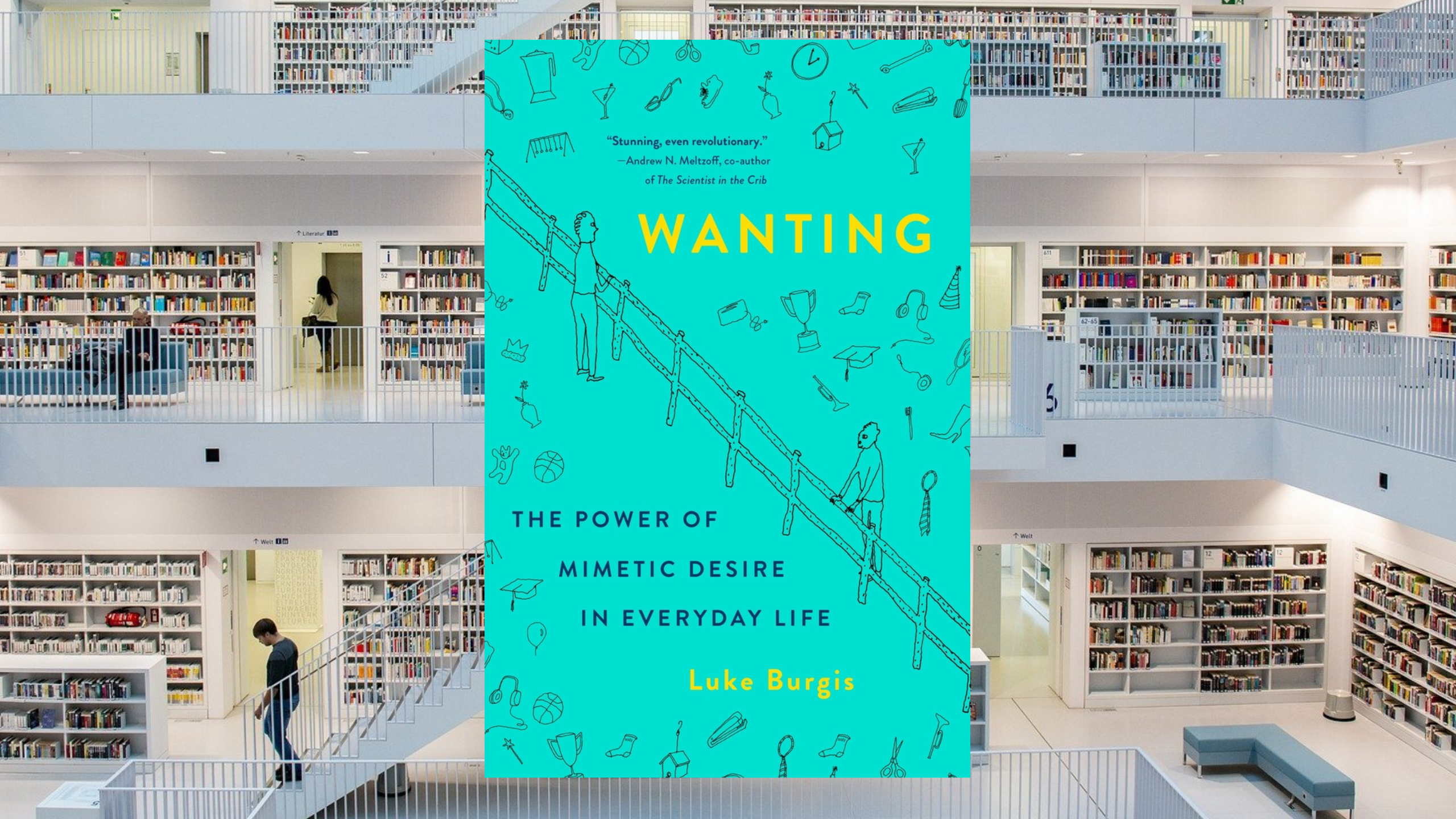
Wanting, by Luke Burgis:
It's surprising how little people know about where their desires actually come from. It's not obvious why we want what we want, and it's the endlessly fascinating "universe of human desire" that is the subject of today's book.
Backed up by the hugely influential French intellectual René Girard, author Luke Burgis shows that humans rarely desire anything independently. Human desire is mimetic - we imitate what other people want.
But in the exact same way that gravity exerts an invisible force on our bodies, the psychological force of mimesis shapes human desire all the time, silently and invisibly, and hardly anyone is aware of it happening at all.
Wanting is about how we arrive at our desires, and about how we can transform our relationship with those desires in order to step into our full humanity, relate to each other more harmoniously, and intelligently select our desires in such a way that we enlarge ourselves, rather than diminish ourselves.
Sample Quotes from the Book:
“Each of us spends every moment of our life, from the moment we’re born to the moment we die, wanting something. We even want in our sleep. Yet few people ever take the time to understand how they come to want things in the first place. Wanting well, like thinking clearly, is not an ability we’re born with. It’s a freedom we have to earn.”
“Desire doesn’t spread like information; it spreads like energy. It passes from person to person like the energy between people at a concert or political rally. This energy can lead to a cycle of positive desire, in which healthy desires gain momentum and lead to other healthy desires, uniting people in positive ways; or it can become a cycle of negative desire, in which mimetic rivalries lead to conflict and discord.”
“There are always models of desire. If you don’t know yours, they are probably wreaking havoc in your life.”
Read the Full Breakdown: Wanting, by Luke Burgis
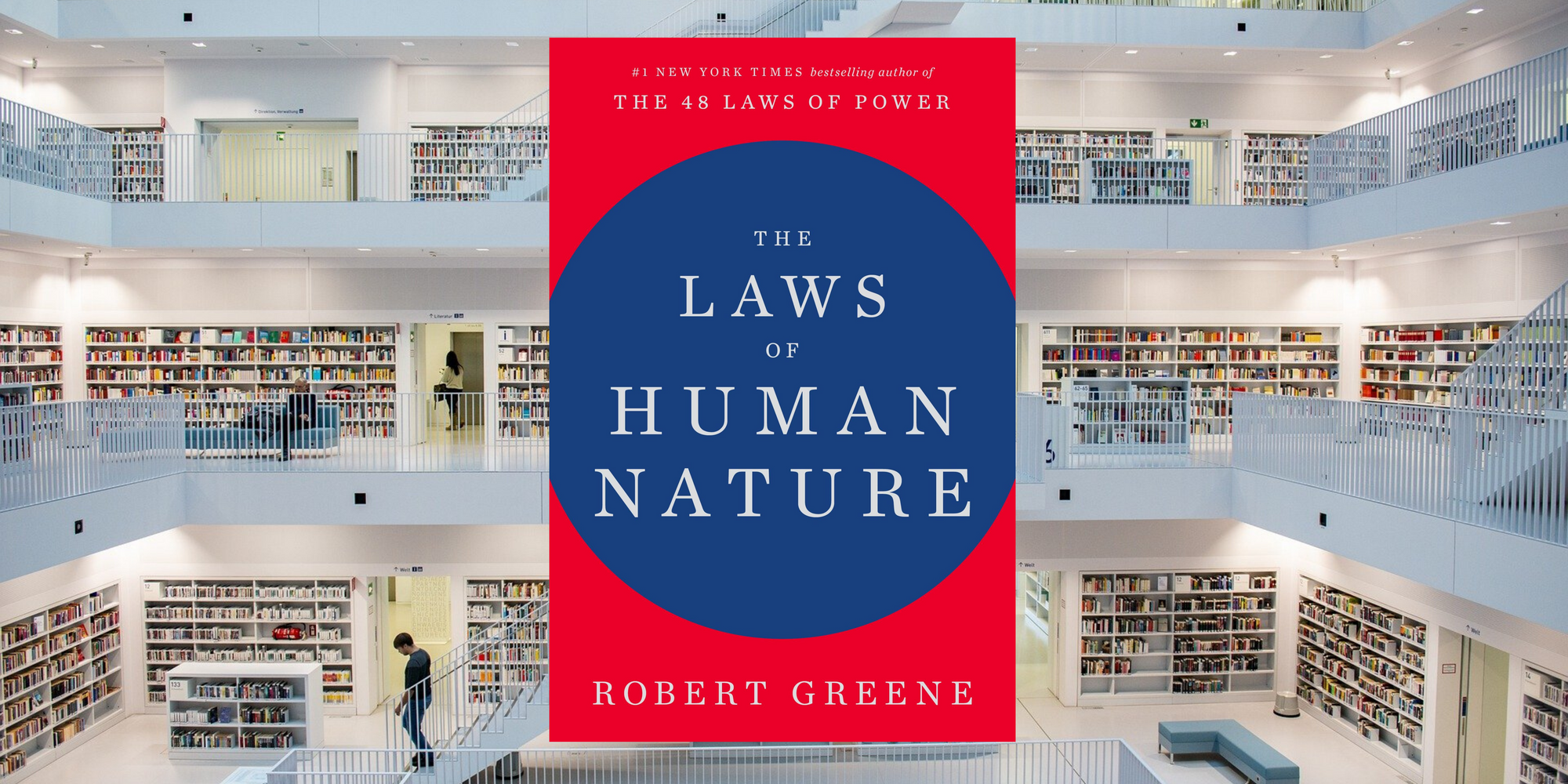
The Laws of Human Nature, by Robert Greene:
Human nature is one of the most expansive topics one could ever hope to cover in a single volume. So of course, you're not going to suddenly "understand people'' by reading it once through, but I would argue that there's not much else that could be a better use of your time.
Seriously, there is just so much here, and I doubt that anyone who has ever made a serious effort to absorb this book's lessons hasn't been fundamentally transformed by what Robert Greene has to teach.
We deal with other people all day long, and we're constantly confused and deceived by their words and actions. They do things we don't understand, for reasons we don't have access to, and not all of them have our best interests at heart. So this book is just as much about self-defense as it is about reigning in your own nature and improving the quality of your own close relationships.
But I wouldn't be doing justice to human beings if I made you think that The Laws of Human Nature is all about protection from the negative aspects of human nature. It's not that at all.
Human beings are astonishing, spectacular, and extraordinary. We are amazing in our ability to connect with one another, solve problems together, console each other when faced with the inherent tragedies of human existence, and simply rise above our circumstances.
Human beings are powerful, impressive, and awesome - but we're complicated. No one has figured us out yet, and with billions of different people all running into each other, speaking all these different languages, and carrying all these different struggles inside of themselves, we're bound to enter into conflict with one another sometimes.
This book is about turning inward, and understanding ourselves in new ways, so that we can take that newfound understanding back into the world with us, and co-exist without tearing ourselves and each other apart.
Sample Quotes from the Book:
"People are generally dealing with emotions and issues that have deep roots. They're experiencing some desires and disappointments that predate you by years and decades. You cross their path at a particular moment and become the convenient target of their anger or frustration. They're projecting onto you certain qualities they want to see. In most cases, they're not relating to you as an individual."
"The greatest danger you face is your general assumption that you really understand people and that you can quickly judge and categorize them. Instead, you must begin with the assumption that you are ignorant and that you have natural biases that will make you judge people incorrectly. The people around you present a mask that suits their purposes. You mistake the mask for reality.
Let go of your tendency to make snap judgments. Open your mind to seeing people in a new light. Do not assume that you are similar or that they share your values. Each person you meet is like an undiscovered country, with a very particular psychological chemistry that you will carefully explore. You are more than ready to be surprised by what you uncover. This flexible, open spirit is similar to creative energy - a willingness to consider more possibilities and options. In fact, developing your empathy will also improve your creative powers."
"The first step, then, is the most important: to realize you have a remarkable social tool that you are not cultivating. The best way to see this is to try it out. Stop your incessant interior monologue and pay deeper attention to people. Attune yourself to the shifting moods of individuals and the group. Get a read on each person's particular psychology and what motivates them. Try to take their perspective, enter their world and value system.
You will suddenly become aware of an entire world of nonverbal behavior you never knew existed, as if your eyes could now suddenly see ultraviolet light. Once you sense this power, you will feel its importance and awaken to new social possibilities."
Read the Full Breakdown: The Laws of Human Nature, by Robert Greene

Finite and Infinite Games, by James P. Carse:
"There are at least two kinds of games: finite and infinite. A finite game is played for the purpose of winning, an infinite game for the purpose of continuing the play."
Thus begins one of the most endlessly fascinating philosophy books you're ever likely to come across - and one that can impact your life in ways that you can't unsee once you've seen them for the first time.
The themes explored in Finite and Infinite Games range from the difference between "education" and "training," and between "power" and "strength," to the nature of evil, our responsibilities towards others, and more. It touches on every part of life, but the final chapter consists of just one single sentence:
"There is but one infinite game."
By this, Carse means that all life, throughout the universe and all creation is bound up in the Infinite Game. And as Alan Watts said,
"You are something that the universe is doing, in the same way that a wave is something that the whole ocean is doing."
You are all of it, and every single "player," so to speak, is infinitely valuable to the functioning of the rest of the cosmos. There are no "extra" players in the game of Life, we're all just figuring this out as we go along, and our greatest adventures lay still further ahead.
Sample Quotes from the Book:
“No one can play a game alone. One cannot be human by oneself.”
“Strength is paradoxical. I am not strong because I can force others to do what I wish as a result of my play with them, but because I can allow them to do what they wish in the course of my play with them."
“Infinite players understand the inescapable likelihood of evil. They therefore do not attempt to eliminate evil in others, for to do so is the very impulse of evil itself, and therefore a contradiction.
They only attempt paradoxically to recognize in themselves the evil that takes the form of attempting to eliminate evil elsewhere. Evil is not the inclusion of finite games in an infinite game, but the restriction of all play to one or another finite game."
Read the Full Breakdown: Finite and Infinite Games, by James P. Carse

Spent, by Geoffrey Miller:
Modern consumer capitalism is all about making us believe that we need something else - something that, by definition, we don't already have - to display our underlying traits and signal to others that we would make attractive mates and relationship partners.
In the book, Spent, Geoffrey Miller breaks down this whole dynamic and shows how and why we use the goods and services we buy to advertise ourselves, what's dangerous and pernicious about this arrangement, and how we can aim towards something better.
Depending on which social group you wish to be a part of, and whom you wish to date or enter into a relationship with, it's in our best interest to accentuate or downplay these traits in different situations. So it follows that we try to signal these traits by dressing, behaving, and speaking in a certain way.
Miller's point, however, is that buying and showing off products to signal these traits is the least effective way of signaling these underlying traits. As human beings, we already come equipped with one of the fastest, most powerful, and most accurate methods of trait assessment yet devised: conversation!
The big lie of consumerism, according to Miller, is that above-average products and services can compensate for below-average traits and qualities, especially in the context of long-term relationships of mutual discovery and growth. And yet, we have this giant advertising machine working 24/7/365 trying to make us forget that we already have everything we need.
Sample Quotes from the Book:
“We take wondrously adaptive capacities for human self-display – language, intelligence, kindness, creativity, and beauty – and then forget how to use them in making friends, attracting mates, and gaining prestige.
Instead, we rely on goods and services acquired through education, work, and consumption to advertise our personal traits to others. These costly signals are mostly redundant or misleading, so others usually ignore them. They prefer to judge us through natural face-to-face interaction.
We think our gilding dazzles them, though we ignore their own gilding when choosing our own friends and mates. This is an absurd way to live, but it’s never too late to come away from it.”
"From my perspective as an evolutionary psychologist, this is how consumerist capitalism really works: it makes us forget our natural adaptations for showing off desirable fitness-related traits.
It deludes us into thinking that artificial products work much better than they really do for showing off these traits.
It confuses us about the traits we are trying to display by harping on vague terms at the wrong levels of description (wealth, status, taste), and by obfuscating the most stable, heritable, and predictive traits discovered by individual differences research.
It hints coyly at the possible status and sexual payoffs for buying and displaying premium products, but refuses to make such claims explicit, lest consumer watchdogs find those claims empirically false, and lest significant others get upset by the personal motives they reveal.
The net result could be called the fundamental consumerist delusion — that other people care more about the artificial products you display through consumerist spending than about the natural traits you display through normal conversation, cooperation, and cuddling."
“I loathe malls, but I respect the free market as the most ingenious system yet devised for people to enjoy mutual gains from trade under conditions of peace, freedom, and autonomy. I hate the way that corporate lobbyists corrupt democracy, but I recognize that our quality of life in the developed world is a fragile, fortunate exception to the global historical norm of toil, oppression, poverty, disease, and death.”
Read the Full Breakdown: Spent, by Geoffrey Miller
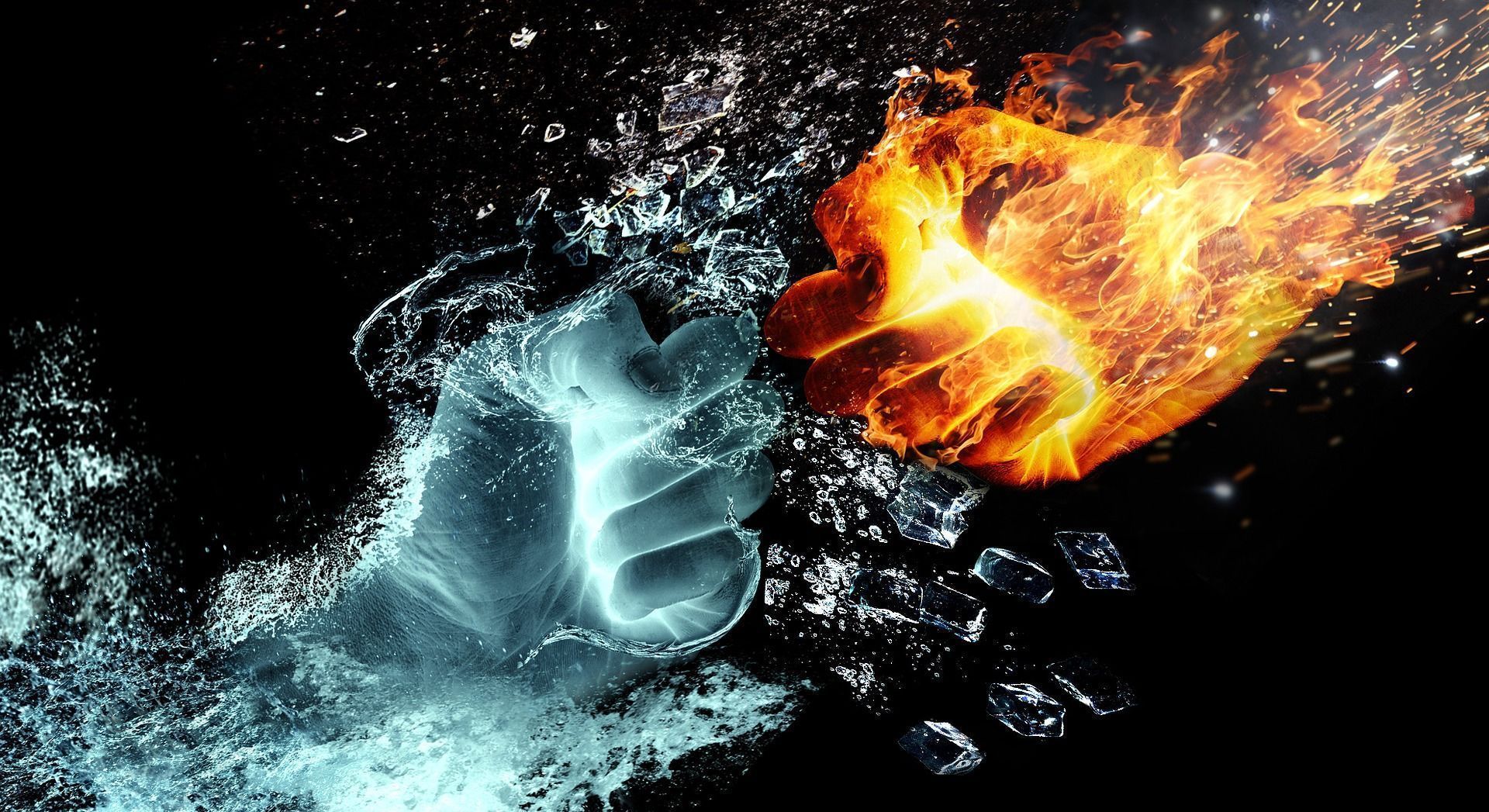
The View from the Opposition:
No one's ideas are beyond questioning. In this section, I argue the case for the opposition and raise some points you might wish to evaluate for yourself while reading this book.
#1: The Infinite Game
While you're reading The Status Game, it's easy to feel as though Will Storr believes that every single human behavior is reducible to the craving for status, and I just don't believe that's a tenable interpretation. For basically any seemingly inexplicable behavior, Storr would just say, "Oh, because status."
I tend to resist accepting wide, sweeping proclamations and grand claims that point to just one single answer, and I think that to say every single thing is about status is an unnecessarily bleak and pessimistic view of human nature.
For example, Storr says that we feel good when we do things for other people only because those prosocial behaviors are likely to elevate our status - our "status-detection system recognizes this - and so that's why we do them. However, it's not unreasonable to suggest that there is something wonderful that exists inside each of us that makes us feel good when we help others and that has nothing to do with status at all.
I also think that reducing everything to status concerns ignores some other massive influences that also subtly direct our behavior, such as the subconscious fear of death, the natural human urge for self-transcendence and mastery, unconditional love, and more. Again, it's just not accurate to say that everything we do is motivated by status concerns.
Furthermore, I would draw your attention to James P. Carse's illuminating work, Finite and Infinite Games. Will Storr's "status game" would be categorized as a "finite game," with winners and losers and a zero-sum structure that narrowly defines gameplay. In contrast, the unfolding of the universe itself - and humans' place within it - is an "infinite game," endlessly playable, with growth, transcendence, and the joy of playing as the only rewards or "goals."
It's almost like in the Bhagavad Gita, where the god Krishna appears to Arjuna before a great battle and shows him the interconnectedness of all things and the ultimately positive, infinite nature of life and the universe. Afterward, Arjuna reasonably asks, "Well, if that's true, why do I have to fight this battle?"
That, I believe, is a clue about how we can think of the "status game." Krishna tells Arjuna that he still needs to fight the battle because it is the nature of things that he does so. It's all part of the game.
So yes, contrary to what Storr says, we can believe two things at the same time: that we are engaged in a fierce battle for dominance within our chosen hierarchies, but also that the fundamental nature of reality is ultimately positive, that we are infinitely deserving of dignity and respect simply by virtue of being alive, and that unconditional love is the ultimate status.
"The test of a first-rate intelligence is the ability to hold two opposed ideas in the mind at the same time and still retain the ability to function.”
-F. Scott Fitzgerald

Questions to Stimulate Your Thinking:
The quality of your life is determined by the quality of your questions. That's also how you get the absolute most out of any book that you decide to read:
You ask great questions the whole time - as though the book was on trial for its life.
Here in this section are a few questions that can help guide and stimulate your thinking, but try to come up with your own additional questions, especially if you end up deciding to read this book the whole way through...
#1: "Have you ever felt the sensation that the social order and the cultural rules surrounding you were, in fact, arbitrary, or even absurd? Have you ever taken a step back in disbelief and thought to yourself, Hey, this is crazy?"
#2: "Do you ever feel as though you're obsessively concerned - or even just a little overly concerned - about the status of others, and/or of your own status in relation to theirs? Do you ever feel this force operating in your life and on your subconscious?"
#3: "How many "dominance hierarchies" are you a part of right now? How many status games are you playing? Did you consciously choose to become part of them, or is your participation more or less an accident?"
#4: "Thinking about the status games that you're currently playing, do you have a rough sense of where you are in relation to the other people who are playing the same game? What are the signs and symbols of success in that game, and how do people display them?"
#5: "Is it possible for you to question your group's most deeply-held beliefs without experiencing severe censure or harsh criticism from the other players of your game? Can you opt out without consequences?"
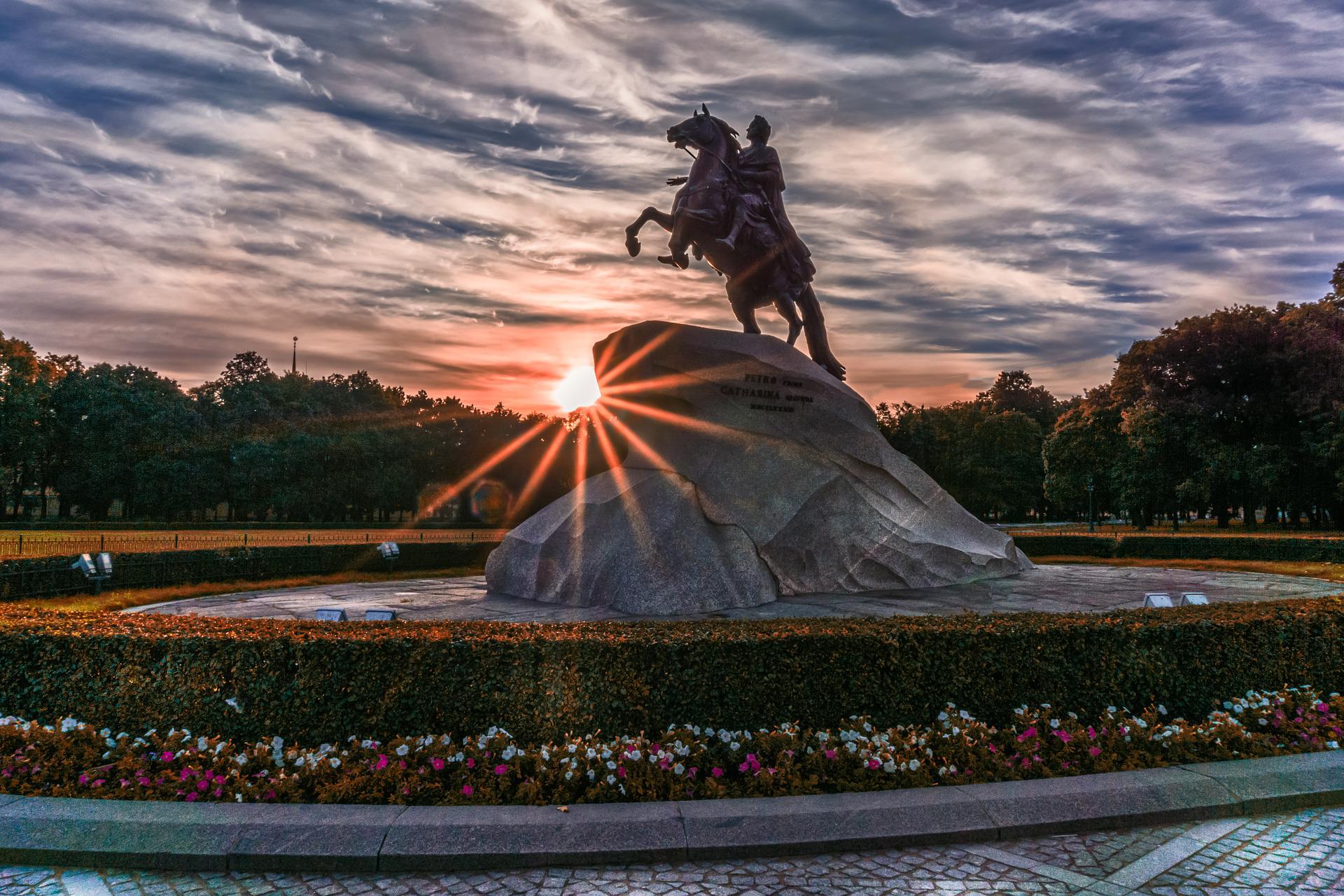
Action Steps:
So you've finished reading. What do you do now?
Reading for pleasure is great, and I wholeheartedly support it. However, I am intensely practical when I'm reading for a particular purpose. I want a result. I want to take what I've learned and apply it to my one and only life to make it better!
Because that's really what the Great Books all say. They all say: "You must change your life!" So here, below, are some suggestions for how you can apply the wisdom found in this breakdown to improve your actual life.
Please commit to taking massive action on this immediately! Acting on what you've learned here today will also help you solidify it in your long-term memory. So there's a double benefit! Let's begin...
#1: Never Forget That You Are Dreaming
The dream of reality believed in by each group you're involved with shapes your perception of reality. It's important to remember, though, that there are many different dreams being experienced concurrently, and that your dream of reality may not be entirely accurate.
Question your dreams, and question your faith in the reality of those dreams - become a lucid dreamer, aware that you're a member of a group, with specific ideas of what constitutes reality, but that no one single version of the truth is the Truth.
#2: Share Your Status Freely
“It’s easy to forget that we have status to give, that it costs nothing and it never runs out.”
It literally costs you nothing to make other people feel better about themselves. It's also possible to make them feel better, while not tearing yourself down. Not only that, it's excellent protection from some of the negative effects produced by most humans' obsession with status.
As we've seen, the humiliated mind is a violent, angry mind, and when you trigger a person's status-detection system and get them to believe that you are a threat to their status and worth, many people will react defensively - and sometimes violently.
So, don't even engage with them in that way. Lift other people up, and raise the human group's status, ignoring the petty, ridiculous status concerns that drive people apart. A rising tide lifts everyone's status.
#3: Practice Warmth, Develop Competence, and Commit to Sincerity
“When we’re warm, we imply we’re not going to use dominance; when sincere; we imply we’re going to play fairly; when competent, that we’re going to be valuable to the game itself”.
We've discussed this in Key Idea #9 above, but it's good to make this idea conscious and concrete. Take active steps to bring warmth, competence, and sincerity to life through your words and actions, and you'll be happier for it.
With the next person you run into, be a little kinder, show a little more appreciation, and make them feel more valuable and connected. It costs you nothing and gives them everything.
With the next task you face, do it to the best of your ability. Commit to mastery, neverending self-improvement, and pride in a job well done. Mastery costs everything, but it's so totally worth it.
And with the next situation you find yourself in, look for opportunities to keep your word and to practice sincerity and trustworthiness. It's not only a key strategy for moving more easily through the status game, but it's also one of the foundations of a good society.

About the Author:
Will Storr is an award-winning writer. He’s the author of six critically acclaimed books, including the novel The Hunger and The Howling of Killian Lone and the Sunday Times bestseller The Science of Storytelling. His journalism has appeared in titles such as The Guardian, The Sunday Times, The New Yorker, and The New York Times.
His prizes include a National Press Club award for excellence and the AFM award for Best Investigative Journalism. His work on sexual violence against men earned the Amnesty International Award and a One World Press Award. He’s also been presented with the AIB Award for Best Investigative Documentary for his BBC radio series.
He teaches popular storytelling classes in London and has been invited to present his Science of Storytelling workshop all over the world. He’s an in-demand ghostwriter whose books have spent months at the top of the Sunday Times bestseller chart and have sold more than two million copies.
Additional Resources:
Will-Storr.com - Official Website
Podcast Conversation with Will Storr - Modern Wisdom
Podcast Conversation with Will Storr - Book Talk Today
Podcast Conversation with Will Storr - What's Your Status?
This Book on Amazon:
The Status Game, by Will Storr
If You Liked This Book:
The Science of Storytelling, by Will Storr
Status Anxiety, by Alain de Botton
The Laws of Human Nature, by Robert Greene
Finite and Infinite Games, by James P. Carse
The Denial of Death, by Ernest Becker
The Birth and Death of Meaning, by Ernest Becker
The Social Animal, by David Brooks
The Narcissism Epidemic, by Jean Twenge and W. Keith Campbell
